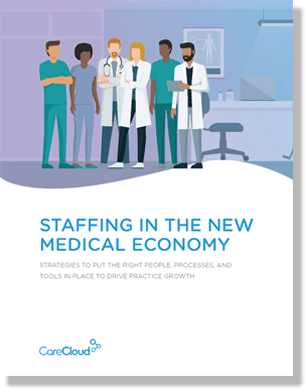As healthcare organizations of all sizes adapt to new security, reporting, and technology requirements, many are finding great value in the cloud while others are unsure of the burgeoning technology.
While health care tends to lag behind most other industries in the adoption of new technology, they are still part of the growing cloud movement with spending expected to reach an estimated $150 billion annually by 2014, according to a recent Gartner Group study.
According to CDW’s 2011 Cloud Computing Tracking Poll, 30 percent of healthcare organizations are already using cloud-based solutions or are in the process of implementing them.
While the overall migration to cloud computing seems widespread, the question becomes: Is it the right move for health care?
Benefits of Cloud Computing
Cost – According to the CDW survey, 88 percent of healthcare organizations that utilize cloud computing have reduced IT costs by an average of 20 percent annually.
Capital – Over 50 percent of the organizations surveyed found some of their cost savings in reduced initial capital outlay, the meaningless up-front risk for companies switching to cloud computing solutions.
Accessibility – “Anywhere access” to documents and applications was one of the top benefits for 49 percent of organizations using cloud computing, according to the CDW survey. This is particularly useful for healthcare providers for accessing electronic health records, test results, and other important info — whether in the office, at the hospital or at home.
IT Requirements – Roughly half of the respondents utilizing cloud computing realized significant benefits from the consolidation of IT infrastructure and reduction of IT energy and power consumption, according to the CDW poll.
Cloud computing presents numerous benefits for small and large healthcare providers alike. Small practices can get the tools and technology of big businesses at a fraction of the cost, while larger organizations have near-infinite system scalability and secure multi-location accessibility.
Questions about the Cloud
However, there are certainly some things for healthcare providers to consider before moving to the cloud-computing model. Here are some important questions to ask potential cloud-service providers:
Security – Reputable cloud-based software providers will be able to explain how they protect personal health information and achieve HIPAA compliance. Ask about encryption, servers, and backups.
Up Time – No technology is perfect, but your potential software provider should be constantly available close to 100 percent of the time. Find out what the protocol is for an outage and the typical response time to get back on line.
Data Control – Knowing the data policies of your software provider is essential. Are they mining your data for information to sell? How difficult is it to take your data to another provider? While they house your data, make sure you keep control of it.
References – Always ask to speak to current customers with a business similar to yours. Third-party validation will help you make a final decision when choosing your cloud-service provider.
You don’t have to do it all at once. The CDW survey found that 73 percent of cloud users started with a single application.
So, whether your practice starts with cloud-based appointment scheduling, billing or EHR, you can take it one step at a time to ease into the cloud. Once healthcare organizations move to the cloud, they tend to see the view is much better up there.
Are you considering moving to cloud-based software? Why or why not?



